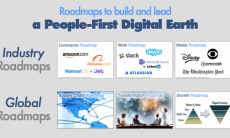Lee Odden just published a great article about social media marketing that he asked me to contribute to, but it got me to thinking about the objections that I often hear. Some companies tell me the “reasons why not” when it comes to their social media plans, and one of the most common is government regulation. So, what if you are a financial services or pharmaceutical company? You are already laboring under many constraints in your advertising due to government regulation. Must you rule out social media?
No one would ever mistake me for a lawyer, but my advice is to those in regulated industries is that social media is a huge opportunity for you. To my knowledge, the existing regulations cover what your company says in public. So, you need to squeeze a mountain of fine print into the bottom of your print ad. You need to hire the guy who speaks at roller coaster speed to say things like “Offer can be made only by formal prospectus” and “If pain persists, see your doctor.”
But what regulations exist about what your customers can say?
I don’t think there are any. So, if your customers are talking to other customers, then you’re home free.
Now, depending on your industry, you need to dress up this advice a bit, because regulated industries almost never call their customers “customers.” So, you can think about clients or investors or (my favorite) “the insured” if you are in financial services. Or “doctors” or “patients” if you are in pharmaceuticals. But the point is that you can use social media to get unregulated people to pass your message around.
The trick is to persuade them to do it.
The easiest way to convince people to talk about you is to follow Seth Godin’s advice to be remarkable. If you really surprise people, they will pass the story along. But that’s probably not so much about marketing—it’s about customer service, quality, and a bunch of things that marketers don’t have much influence over.
What can marketers do to get customers to pass along stories to others? They need to think like public relations folks. PR people know how to talk to the media to get them to pass along your company’s message. They know they need an interesting angle to a story—not some copy ripped from your company’s catalog. You need to do the same thing with your customers. Pass along a story worth retelling and it will be passed on.
But it’s more complicated for regulated businesses. You can’t always just dump your story out there and wait for Digg nation to take over. Because you are regulated about what you say in public, it’s not easy to craft an interesting story that gets by your legal department.
So, engage with your community. Find ways to converse with them in private, either offline, by phone, or in e-mail. In many countries, regulations for private conversations are less onerous than those for advertising. Why not reach out to some of your most influential customers and invite them to a conference where you discuss your latest insights? Or provide an insider Web site where you provide information you don’t give everyone else? How about a private wiki where you share information and the customers can comment and update?
Using social media doesn’t solve all regulatory problems for marketers, but they might provide some opportunities that elude you in your normal advertising. Of course, you should be very careful not to mislead or otherwise take advantage of customers who are listening to you—that provides a backlash of its own. But if regulatory constraints are keeping some of your best messages under wraps, social media might offer an opprtunity to share them.






